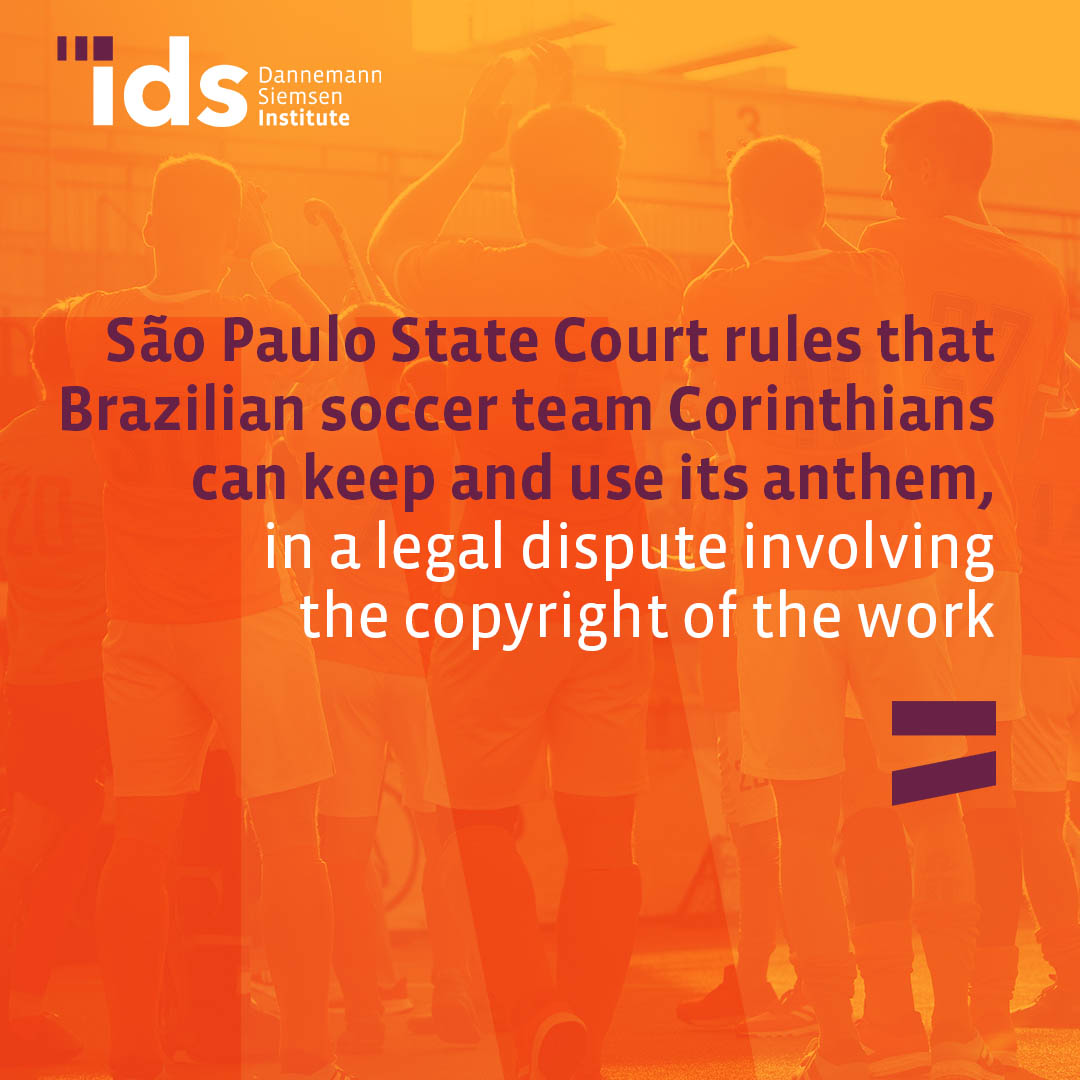29 de outubro de 2024
Share
São Paulo State Court rules that Brazilian soccer team Corinthians can keep and use its anthem, in a legal dispute involving the copyright of the work
In a judgment handed down on September 30, the 30th Civil Court of the São Paulo Court of Justice ruled that the Corinthians sports club had the right to use its own anthem, without paying any royalties. The lawsuit was brought by two publishers who demanded payment from the São Paulo club for the copyright of the song, composed by the radio broadcaster Benedito Lauro D’Avila and released in 1952 under the title “Campeão dos Campeões” (Champion of Champions).
In 2014, 25 years after the composer’s death, the club received a notification from one of the publishers representing the interests of the author’s heirs, informing them that they were aware of the use of the anthem by the club and asking them to contact them in order to protect the interests of the heirs and other owners, based on a publishing contract registered with the Central Office of Collection and Distribution (Ecad) dated 1969 in the name of the publisher. For its part, Corinthians claimed that it signed a verbal agreement with broadcaster Lauro D’Avila, composer of the anthem, in 1955. According to the club, the “word of mouth contract” allowed the free use of the lyrics as a form of promotion and institutionalization, without charging any money, in exchange for publicizing the work and the composer’s name.
In the judgment, a verbal contract made by the club with the author of the song, Benedito Lauro D’Avila, for the free use of the work entitled “Campeão dos Campeões” was declared valid. According to the judge in the case, Marcella Leal Restum, “in view of the date of the facts, since the verbal contract for which recognition is sought was concluded in 1955, the legal regime of the Civil Code of 1916 is applicable. This is because the event in question took place under the validity of this legal diploma and in the absence of specific regulations on the subject of copyright”.
The argument was supported by the principle of tempus regit actum, i.e. the rules applicable to a legal event are those in force at the time of its occurrence. Thus, according to article 1079 of the Civil Code of 1916, “the manifestation of will, in contracts, may be tacit, when the law does not require it to be express”. The judge also pointed out that “it has been proven that the author’s career as a composer of musical works was dedicated almost entirely to the universe of Sport Club Corinthians Paulista, with most of his creations dedicated to the author’s club”. Thus, the decision also deals with the validity of the terms of the verbal contract signed by the author with the club during his lifetime, even after his death, since the successors “inherit the rights under the same terms agreed by the author, and, after his death, the heirs or eventual assignees of rights cannot intend to retroactively modify a valid contract, which was already being fulfilled by the parties during the author’s lifetime”.
In this sense, the court concluded that “there was in fact a mutual concession of rights: while the club agreed to the use of his name and image, personality rights, the composer of the work agreed to the use of it by the club, without charging any money. In this way, the existence of an agreement is characterized in which, on the one hand, there is authorization for the use of the club’s name and image, and, on the other, permission for the use of the work, both concessions being made free of charge, without any fee being charged. This demonstrates the intention of mutual collaboration”.
The judge also highlighted the issue of protecting the composer’s memory and legacy. Here, the decision notes that “if the anthem was a work created as a tribute to the club, it is reasonable to assume that the author, in life, would have wanted his contribution to continue to be used by the club, as a permanent part of its history. Thus, preventing its use or seeking to charge for it could be seen as a distortion of the deceased’s wishes, hurting his memory. In this way, it can be inferred that the composer did not wish the free use of his work by the club to be a matter of controversy, but rather that it reflects its true purpose, being preserved as a legacy for the fans.” Finally, the validity of the verbal contract was judicially recognized, guaranteeing Corinthians’ exploitation of the property rights to its anthem.
The decision commented on is in line with the decision handed down in Civil Appeal No. 60906/2006, by the Seventh Civil Chamber of the TJRJ, on April 18, 2007, in a similar case involving the anthem of the Rio de Janeiro soccer club, Fluminense.
The decision can be accessed via the link: Processo nº: 1130836-69.2022.8.26.0100
Note: For quick release, this English version is provided by automated translation without human review.
